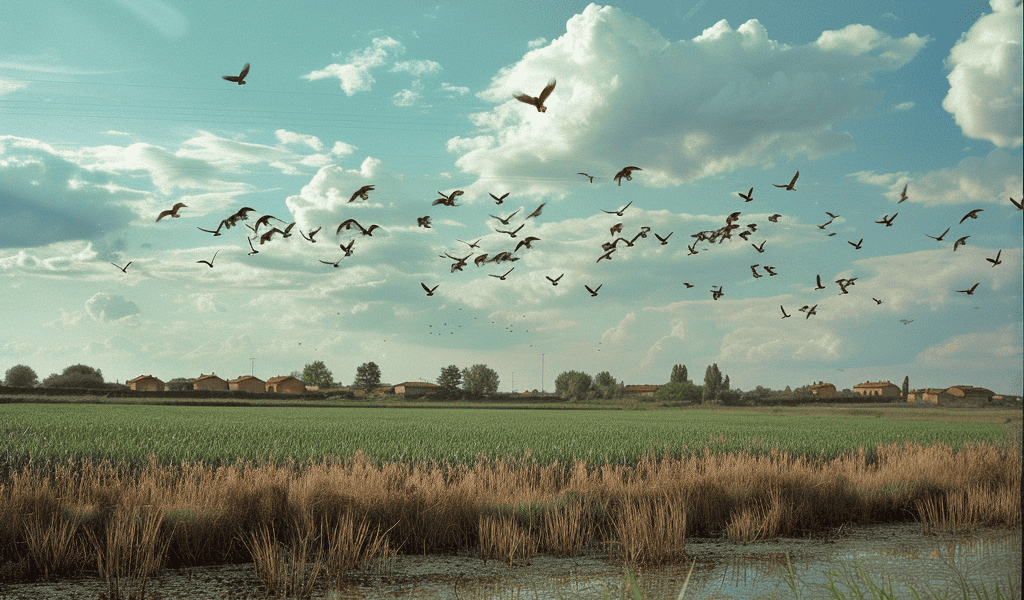Study Finds West Nile Virus in Europe Associated with Agricultural Activities, Urbanization, and Bird Migration
West Nile virus, a mosquito-borne disease, has been found to be strongly associated with agricultural activities, urbanization, and bird migration in Europe, according to a recent modeling study published in the open-access journal PLOS Pathogens by researchers from the University of Edinburgh, U.K., and collaborators from the VEO (Versatile Emerging infectious disease Observatory) project.
Unlike in the U.S., where the virus behaves differently, outbreaks of West Nile virus in Europe have affected birds, livestock, and humans. To understand the virus’s evolution and spread in Europe, Dr. Lu and colleagues utilized data from virus genomes, epidemiology studies, and environmental surveys spanning two decades to develop models simulating the virus’s patterns across European geography.
The study revealed that a specific sub-lineage of the virus, WNV-2a, unique to Europe, accounts for nearly 75% of all known instances of the virus in Europe and has spread to at least 14 countries. The spread of WNV-2a was found to be strongly correlated with agricultural activity, potentially due to the degradation of natural bird habitats and altered migration patterns, creating new aquatic habitats for mosquito breeding.
Additionally, the study found that the spread of WNV-2a was associated with urbanization, high wetland coverage, and migratory bird movements. The primary carrier of the virus, the Culex mosquito, is known to thrive in urban environments due to the availability of artificial aquatic habitats, fewer natural predators, and warmer temperatures. As birds often carry the virus, their movements also contribute to its potential spread.
The researchers emphasized the need for enhanced surveillance in Central Europe, identified as a potential source for the dissemination of West Nile virus across the continent. They also recommended increased monitoring for the virus in high-risk areas due to agricultural and urban development.





